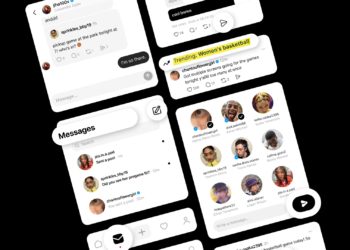National security adviser Mike Waltz’s team has reportedly created 20 group chats on the commercial Signal app to coordinate official work on issues ranging from Ukraine, China and Gaza to Middle East policy, intensifying concerns about national security.
The recent report regarding the group chats also cite Waltz and one unnamed senior aide conducting official business, including exchanging schedules and work documents, over personal Gmail accounts — information that could potentially be exploited by foreign intelligence agencies.
Sensitive information was reportedly shared in these chats, raising questions about the security of using such platforms for government business.
Politico reported that four unnamed individuals, who were personally added to the Signal chats, revealed they had direct knowledge of at least 20 such conversations, with all four witnessing the discussion of sensitive information. One source stated that Waltz and incoming National Security Council (NSC) staff began using Signal during the presidential transition and continued to do so.
“It was commonplace to stand up chats on any given national security topic,” according to one person involved in the chats, adding that the groups frequently included Cabinet members and senior staff.
Meanwhile, lawmakers and experts have raised concerns that the use of Signal and Gmail for official business may violate federal records-keeping laws.
Experts argue that while both Gmail and Signal offer robust security features, they do not match the heightened security standards required for official government communications. Hackers, particularly those affiliated with adversarial nations like China and Russia, frequently target users in the U.S. government, making it risky to rely on these platforms for sensitive discussions, critics urged.
“Communication systems approved for government officials meet security requirements and government records management requirements,” said Lorrie Cranor, a professor on security and privacy technology at Carnegie Mellon University’s CyLab.
Signal messaging controversy expands
The new report came on the heels of the ongoing fallout from a previous incident involving Signal, where senior administration officials, including Waltz, Vice President JD Vance, Director of National Intelligence Tulsi Gabbard, CIA Director John Ratcliffe, and Defense Secretary Pete Hegseth, were caught discussing the timing and location of U.S. military strikes in Yemen.
The chat was revealed when Waltz accidentally included Jeffrey Goldberg, editor-in-chief of The Atlantic, in the Signal chat. Goldberg later published the messages, prompting an uproar and fueling allegations that classified information had been mishandled.
Despite assertions from officials that no classified information was shared, the incident has prompted extensive scrutiny. Last week, when Gabbard and Ratcliffe were questioned by House and Senate Intelligence panels, both of them denied transmitting sensitive data through Signal.
On Monday, White House spokesperson Karoline Leavitt had declared that the situation had been “closed” and that steps had been taken to ensure such incidents would not recur.
White House responds to the controversy
Brian Hughes, a spokesperson for the NSC, defended Waltz’s actions, stating that no classified material had been shared over his personal email or any unsecured platform. However, he acknowledged that some non-sensitive information had been exchanged through Gmail, prompting further questions about the adequacy of using personal email for government-related communications.
“It can be used for unclassified messaging and a user has the responsibility to preserve any official record created. Some in NSC, like those in the media and many areas across the federal government, use the Signal app,” Reuters quoted Hughes as saying.
Lawmakers push for accountability
The issue has sparked strong reactions from Congressional Democrats, who are calling for increased accountability from the Trump administration and a reevaluation of government communication policies.
“The White House keeps saying this issue is ‘case closed’ but it is anything of the sort,” House Homeland Security Committee ranking member Bennie Thompson (D-Miss.) said Tuesday night, noting that Gmail is “far less secure than Signal. Not only is it a security risk — it’s another flagrant skirting of recordkeeping laws.”
“Again, it’s amateur hour in the Trump White House,” he added.
However, Republican lawmakers have downplayed the issue. Sen. Mike Rounds (R-S.D.) stated that as long as no sensitive or classified material was shared, he had no issue with the use of Gmail for official business. Similarly, Rep. Andrew Garbarino (R-N.Y.) expressed confidence that the administration would be more cautious moving forward.
Despite the controversy, President Donald Trump has continued to support Waltz, even as the criticism grows louder on Capitol Hill.
The post Waltz’s Team Created 20 Signal Chats To Discuss National Security And Foreign Policy: Report appeared first on International Business Times.




